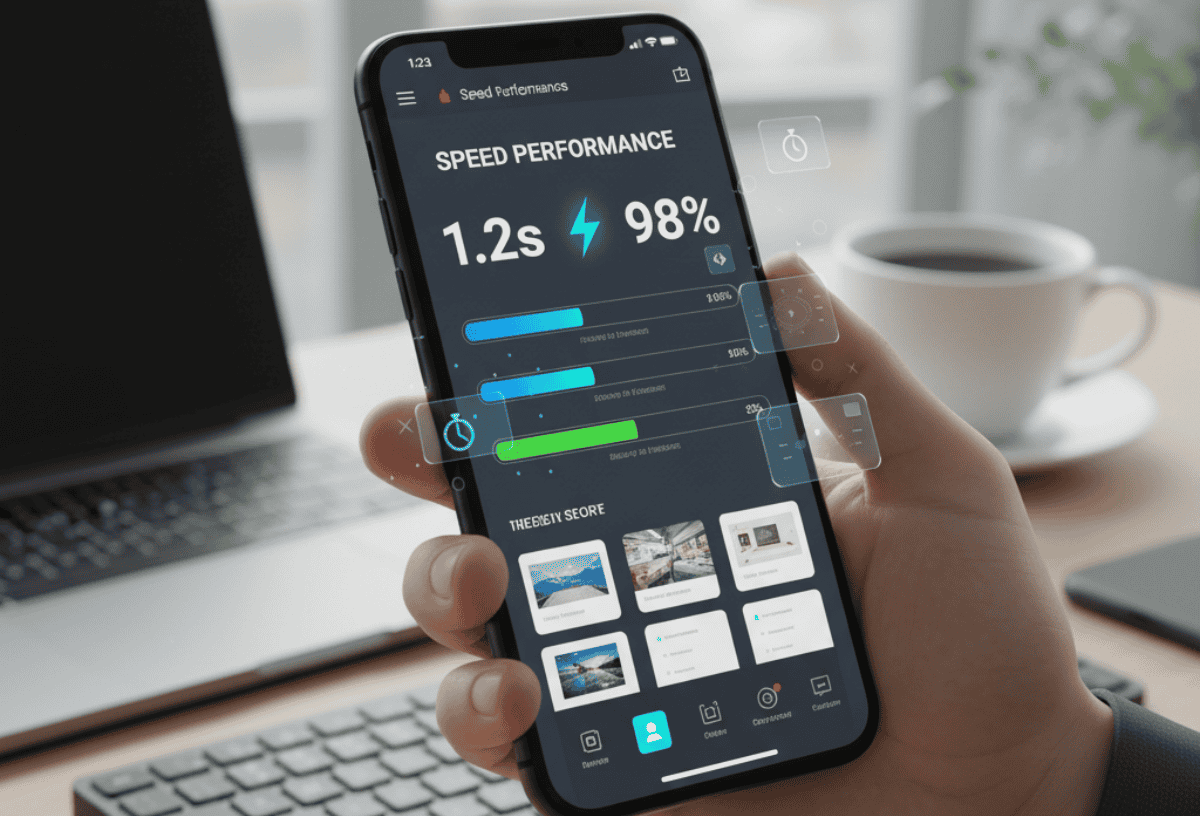The way people search has fundamentally transformed. No longer are users typing specific queries into search bars—instead, they’re speaking natural questions to their devices. 40% of adults now use voice search daily, and for entertainment venues, this shift represents both a challenge and a massive opportunity to capture high-intent local traffic actively seeking your services.
Understanding Voice Search Behavior for Entertainment Venues
Voice search queries follow a distinctly different pattern than traditional text searches. When someone types, they might search “live music clubs near me.” When they speak, they ask “What are the best live music venues near me that are open tonight?” This conversational nature of voice queries is critical to understand because voice assistants are searching for complete, conversational answers, not keyword-stuffed content.
For entertainment venues—whether concert halls, nightclubs, theaters, or comedy shows—voice search represents an unprecedented opportunity. Users often search for entertainment venues during decision-making moments when they’re actively ready to visit. They’re asking “Is this theater open right now?” or “What time does the nightclub open?” These high-intent queries convert faster than almost any other search type.
Step 1: Optimize Your Google Business Profile for Voice Search
Your Google Business Profile is the single most important asset for capturing voice search traffic. When users ask “restaurants near me” or “entertainment venues open now,” Google pulls information directly from Business Profiles.
Essential optimizations include:
- Accurate business information: Ensure your name, address, and phone number (NAP) are identical across all platforms. Voice assistants verify information across multiple sources, and inconsistencies confuse the algorithm.
- Complete business details: Add your venue type, business hours, website URL, and reservation links. Missing hours of operation is the #1 reason entertainment venues lose voice search visibility.
- High-quality photos and videos: Add recent photos of your venue, performances, and ambiance. Voice assistants prioritize visually verified businesses.
- Regular posts and updates: Post upcoming events, special offers, and announcements. Fresh content signals active management to voice systems.
Step 2: Target Conversational, Question-Based Keywords

Voice searches are overwhelmingly question-driven. Research shows 65% of voice searches begin with “how,” “what,” “why,” “where,” or “when.”
For entertainment venues, focus on long-tail conversational keywords like:
- “What’s the best jazz bar near me in Noida?”
- “How late is the nightclub open in Greater Noida?”
- “Where can I find live concerts near me?”
- “Are there comedy shows near me tonight?”
- “What movie theaters are open now in Ghaziabad?”
Create dedicated content sections addressing these questions. Structure your website with an FAQ page specifically answering voice search queries about your venue, hours, parking, seating capacity, and upcoming events.
Step 3: Implement Schema Markup for Local Venues
Schema markup helps voice assistants understand your venue’s context and characteristics. Implement the following schema types:
- LocalBusiness schema: Defines your venue’s basic information (name, address, phone, hours)
- Event schema: For upcoming performances, concerts, or shows
- OpeningHoursSpecification: Clearly defines when your venue opens and closes
- Place schema: Details about parking, accessibility, seating capacity
This structured data makes your venue’s information easily extractable by voice assistants, increasing the likelihood of being featured in voice search results.
Step 4: Prioritize Mobile Optimization and Site Speed

The majority of voice searches occur on mobile devices. Users ask voice queries while driving, walking, or on the go. If your website takes more than 3 seconds to load, voice users will immediately move to a competitor.
Critical mobile optimizations:
- Ensure your website is fully responsive and mobile-first
- Compress images and minimize JavaScript
- Implement lazy loading for faster perceived speed
- Use Google PageSpeed Insights to identify bottlenecks
- Ensure your contact number and “Get Directions” button are prominently visible above the fold
Step 5: Create Location-Based Content and Reviews
Voice assistants heavily weight user reviews and local mentions when determining venue recommendations. Encourage guests to leave reviews mentioning specific shows, performances, or experiences. Review content becomes voice search indexable.
Additionally, create location-specific landing pages that include:
- Local event listings and performance schedules
- Neighborhood-specific content (e.g., “Live Music Venues in Sector 18 Noida”)
- Partnerships with local businesses and influencers
- Community event sponsorships mentioned on your website
Step 6: Optimize for Featured Snippets

Voice assistants frequently read featured snippets aloud. To optimize for featured snippets:
- Answer questions in 40-60 words in a clear, concise format
- Use lists and tables for easy extraction
- Place the direct answer at the beginning of relevant sections
- Include your venue’s key information (hours, location, phone) in multiple formats
Implementation Timeline for Entertainment Venues
Week 1: Audit and optimize Google Business Profile with complete information
Week 2-3: Create FAQ page with voice search-optimized content
Week 4: Implement schema markup across website
Week 5-6: Mobile optimization audit and speed improvements
Week 7-8: Encourage review generation and create location-based content
Measuring Voice Search Success
Track these KPIs to measure voice search effectiveness:
- Direct traffic increases: People searching via voice often visit directly
- “Near me” search rankings: Monitor rankings for local “near me” queries
- Phone call volume: Voice searches drive phone inquiries
- Featured snippet appearances: Track which questions trigger snippets
- Google My Business engagement: Monitor views, calls, and direction requests
Conclusion
Voice search represents the future of local search for entertainment venues. By optimizing your Google Business Profile, targeting conversational keywords, implementing schema markup, and prioritizing mobile experience, you position your venue as the go-to destination when potential customers search via voice. In the entertainment industry, where last-minute decisions dominate, capturing voice search traffic isn’t just beneficial—it’s essential for sustained growth.
FAQs
- How does voice search differ from regular text search for entertainment venues?
Voice search is conversational and question-based, meaning users ask full questions instead of typing short keywords. This helps entertainment venues appear for high-intent “near me” searches. - Why is Google Business Profile essential for voice search visibility?
Most voice assistants extract local business information directly from Google Business Profile (GBP). Accurate hours, photos, categories, and updates improve your chance of appearing in voice-based results. - Do entertainment venues need schema markup for voice SEO?
Yes. Schema markup helps voice assistants understand your events, operating hours, seating, and venue type—improving your chances of ranking for voice queries. - What types of keywords are best for voice search?
Question-based, conversational long-tail keywords like “Which nightclub is open near me right now?” or “Where can I watch live music tonight?” - How can mobile optimization improve voice search ranking?
Most voice searches happen on mobile. Fast-loading, mobile-friendly websites help voice assistants trust and surface your venue in results.
6. Do customer reviews influence voice search ranking?
Yes. Reviews mentioning specific services, events, and experiences are heavily weighted by voice algorithms.


